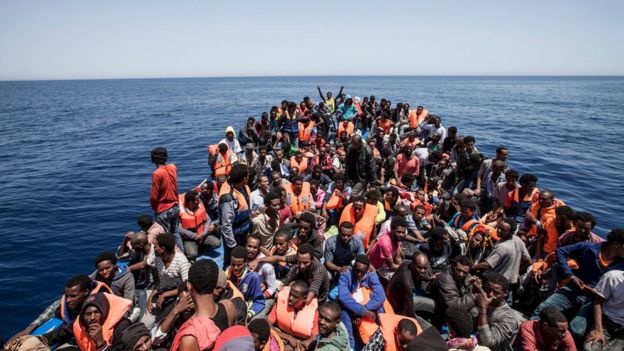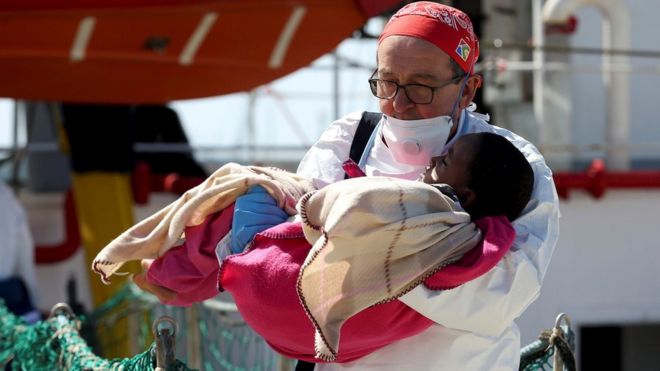MSF singled out the EU's deal with Turkey under which Turkey agreed to take back any migrants who crossed the sea to Greece in smugglers' boats.
The number of migrants - many from war-torn Syria - to Europe is at its highest level since World War Two.
The charity received $63m (£44m) from the EU and its members last year.
"MSF announces today that we will no longer take funds from the EU and its Member States in protest at their shameful deterrence policies and their intensification of efforts to push people back from European shores," the group said in a statement.

Is the deal working?
The EU-Turkey deal came into effect on 20 March.
Migrants arriving in Greece are now expected to be sent back to Turkey if they do not apply for asylum or their claim is rejected.
For every Syrian migrant sent back to Turkey, one Syrian already in Turkey will be resettled in the EU.
A month into the arrangement, EU officials said it had begun to produce results.
"We have seen a sharp reduction of the illegal migration flows," European Council President Donald Tusk said in April.
Opponents of the deal question its legality and argue that Turkey is not a safe place to return people to.
In the latest incident at sea more than 200 migrants were rescued from a sinking ship off the coast of Greece on Thursday.
On board was a pregnant Eritrean woman who gave birth shortly after they were rescued. She named the girl "Gelila" meaning "from the ocean".
The Dutch frigate that conducted the rescue is part of Operation Trident run by European border control agency Frontex.
MSF also has three vessels patrolling the Mediterranean, which it says have rescued 3,349 people in the course of 27 different rescue operations since April.
''BBC News''


No comments:
Post a Comment